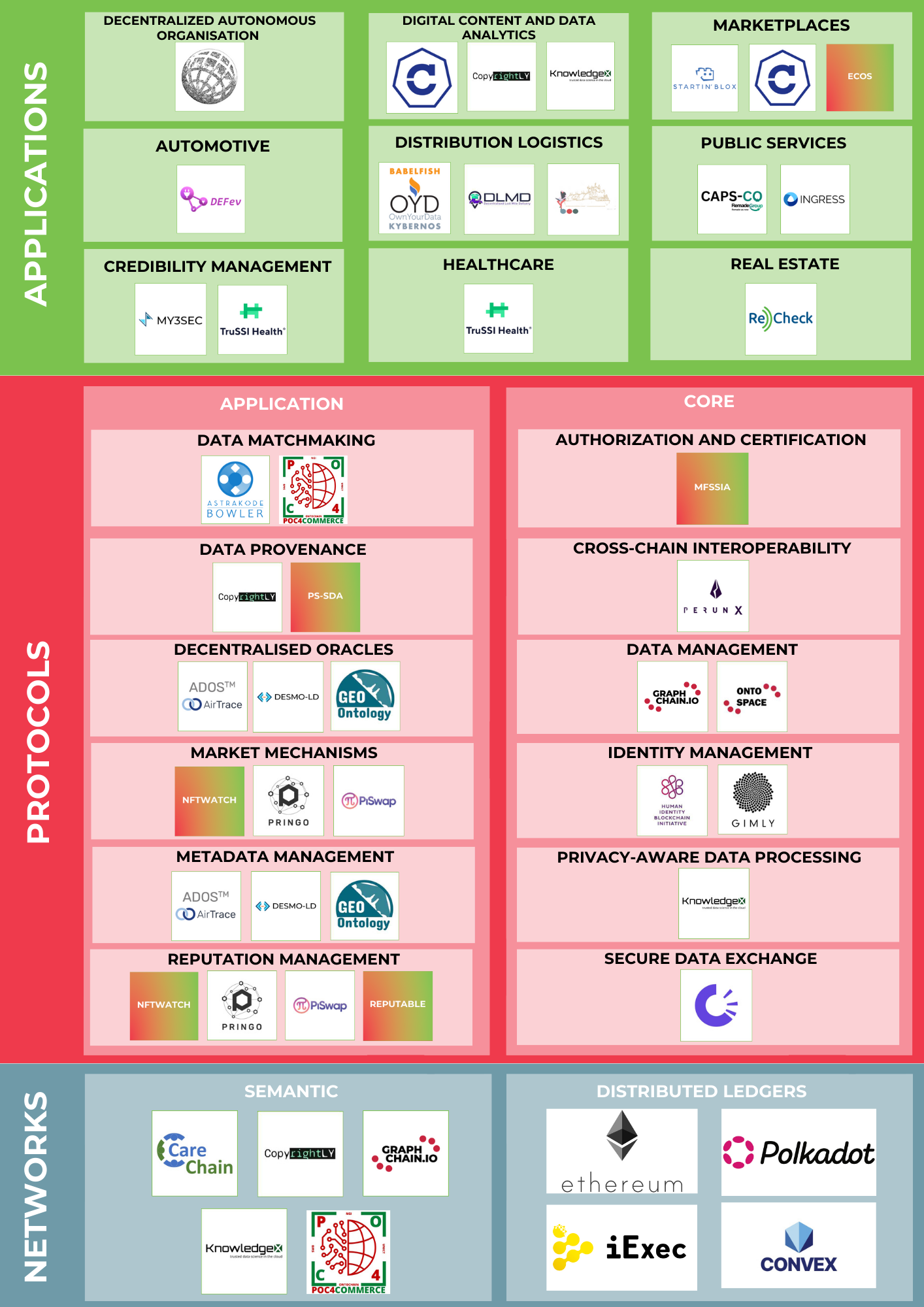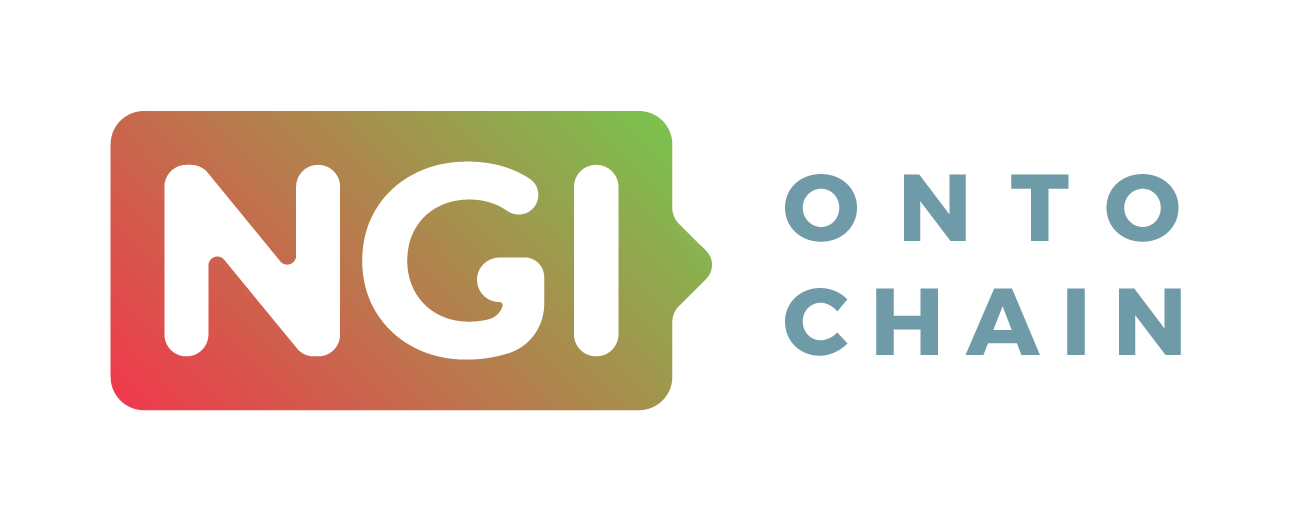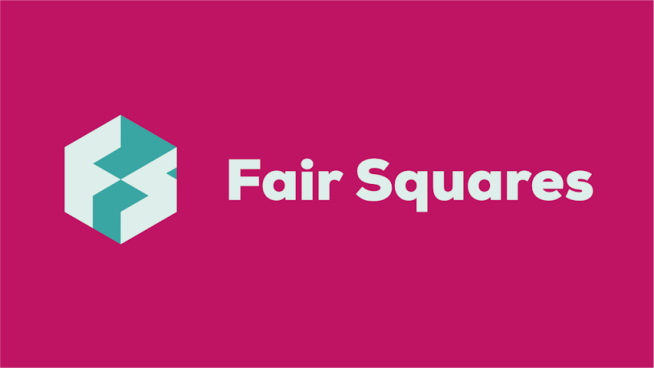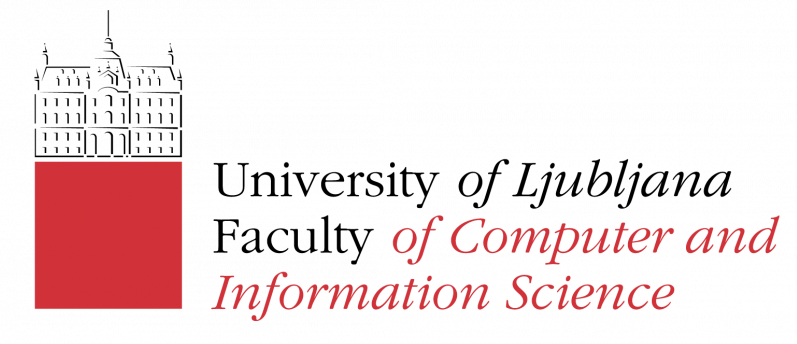ONTOCHAIN
A new software ecosystem for trusted, traceable & transparent ontological knowledge
The ONTOCHAIN project funded a total of 44 innovative solutions that contribute towards The Next Generation Internet
The project contributed to
![]()
A RESILIENT INTERNET
Protection of privacy
User empowerment
Inclusiveness
Openness
![]()
A TRUSTWORTHY INTERNET
Trustworthy content
Trustworthy information exchange
Trustworthy identities
![]()
A SUSTAINABLE INTERNET
Interoperable services
Data traceability
THE SOFTWARE ECOSYSTEM DELIVERED

ADOS (AirTrace Decentralized Oracle System)
×Effective technologies and services delivered
AirTrace is a platform that allows, both visually as well as programmatically to quickly and easily deploy IoT networks supporting Blockchain. Users (IoT system integrators and IoT SaaS platforms) simply choose the IoT devices to deploy among the growing database of IoT System Integrators, and after a few configuration steps, the resulting interfaces (RestFUL API, MQTT, etc.) are generated, so that integrators can easily support them in their IoT projects. IoT oracles that meets a predefined data quality level. The real utility of ADOS in the platform AirTrace (as well as other potential platforms that in the future might make use of ADOS for other non-necessarily blockchain-related anomaly detection schemes) is that it helps potential audits later to verify the reliability of data when already stored in the Blockchain. This increases transparency of data and improves the reliability of Blockchain and IoT systems by improving the core element: reliability of data and its credibility. ADOS helps to maximize data reliability by proving that anomaly detection algorithms can be used in distributed oracle systems in order to have an extra layer that can convey important information to enhance data credibility before injecting into the Blockchain.
- Data quality is specified with an ontology , as well as the nature of data
- Solution is EVM-compatible.
Limits of the solution
Limitations on current set of scenarios available for ontologies. Now growing.
Standards
OWL, EVM-compatible
Type of use cases supported
IoT, oracles
Click here for more information.
BOWLER
×Effective technologies and services delivered
A low-code development environment which speeds up low level smart contracts development. BOWLER offers a model-driven Web-IDE to allow (a) faster time to market (KPI: 1-statement smart-contract deployment in < 1hr), (b) easier evolution through reusable models, (c) fostering standardization and thus interoperation amongst the entire ONTOCHAIN ecosystem. Indeed, the BOWLER provides end-to-end support through its web-enabled IDE to reuse preexisting model specifications (blueprint), model them and generate deployable Solidty code. In this way, the BOWLER can be used by any member of the ONTOCHAIN ecosystem to quickly deliver trustworthy smart contract solutions.
Limits of the solution
No specific limitation.
Security can be a limitation please, elaborate on that
Type of use cases supported
Development tool > upon need of the App developpers
Ticketing e.g build some ticket for events in a simple maner. 1 NFT =1 ticket
Link to the id on the website so that users can play with it.
Click here for more information.
CopyrightLY
×Effective technologies and services delivered
CopyrightLY is an application that helps managing ownership and rights in the ONTOCHAIN ecosystem. From claiming authorship of content or data, to linking these claims to evidence off-chain or associating reuse terms that once agreed set the reuse conditions among the involved parties. CopyrightLY proposes a system capable of rooting on-chain copyright transactions, especially NFTs, on copyright claims that can by tied to evidence and validated on court. These set of evidence, together with the opportunity to make complaints and use incentives to curate them, makes it possible to build a scalable and community driven content ownership layer.
Limits of the solution
Token Curation Registry not fully developed yet. Staking implemented for authorship claims but pending for complaints.
Standards
ERC20, ERC721, JSON-LD, EVM smart contracts, IPFS, Oracles
Type of use cases supported
Novel social media monetizations mechanism, beyond those provided by existing platforms like YouTube. Decentralized copyright registry based on blockchain technologies. Minting trustful NFTs, which can be linked to the copyright claims and the licensing terms.
Click here for more information.
PiSwap
×Effective technologies and services delivered
Platform for NFT price determination. Users can use NFTSwap to create markets for any owned or not-owned NFT by minting a derivative NFT. This derivative market will be provided with liquidity and will create a Bull-Bear-Token allowing users to participate in the price building of this particular NFT. The project prediction-system will pave the path for the availability of new assets on-chain. With its open-source approach the blockchain-agnostic solution will be used on additional chains opening new markets and new fields of interest. The solution architecture of NFTSwap project can be compared to the smart contract architecture of UniSwap. There is a central factory contract (Registry) that deploys individual NFT markets. Instead of deploying ERC20 contracts, the factory contract is an ERC1155 contract that registers all individual tokens used by the deployed markets.
Limits of the solution
No particular limitation. Maybe coastly service (fee, can be asked for specific reduction for OC3)
Standards
Smart contract is EVM compatible
Type of use cases supported
Use when the price for an NFT is unknown and/or there is a lack of liquidity related to an NFT. Every projects that use NFTs and do not have the value of the NFT (ex of integration PRINGO and DKG ) logbook of building.
Click here for more information.
POC4COMMERCE
×Effective technologies and services delivered
Ontologies for service description in the blockchain e-commerce. Also, a search engine for finding suitable service/product matching user requirements. POC4COMMERCE innovates the ontological representation of Blockchain-oriented digital commerce by integrating and extending the most representative ontologies for modelling, participants, in particular commercial actors, offers, products, and tokens emitted on the Ethereum Blockchain as digital representation of exchanged assets: providing a semantic descriptions of smart contracts and related transactions, in particular of smart contracts related with tokens trading and associated with commercial means. POC4COMMERCE reuses and extends the most suitable and relevant ontologies in the domain, namely, OASIS for the representation of commercial participants and smart contracts, GoodRelations for representing commercial offers, and BLONDiE for describing Ethereum essential elements: all these ontologies are conjoined and extended to also cover the gap missing from the literature on the representation of digital tokens, smart contracts, digital identities, valuation mechanisms, and auctions.
Limits of the solution
The ontological stack should get rid of BLONDiE and GoodRelations as to provide a fresh non-bounded epistemiological approach. The search engine is a prototype and should be enhanced, generalized and provided with a GUI.
Standards
OWL, SPARQL
Type of use cases supported
Trading of products/services provided with NFT through the Ethereum blockchain, e.g., iExec marketplace.
Click here for more information.
GEONTOLOGY
×Effective technologies and services delivered
GEONTOLOGY aims to develop a network protocol that promotes regulation of data exchange, trust, consent management, reputation and security as contribution for the emerging Data Economy Ecosystem built on Blockchain technology. In details, GEONTOLOGY proposes an innovative protocol called Proof of Offset (POO) to enable a higher control and limit data access by geo-location, accountability, data exposition minimization, data semantic annotation that guarantee cross-domain data re-use and higher awareness about data protection. POO algorithm will be provided a deterministic mechanism to validate the geo-location from nodes requesting data in order to validate its legal jurisdiction. In addition, POO algorithm will be specialised to detect the use of relay nodes such as proxies and other entities that could manipulate the network location (IP address).
Geolocation service. Maintains a network of registered nodes that are used to verify the geolocation of future objectives (either objects to be geolocated, or new nodes to be registered into the network). Nodes receive a payment for each verification they participate in.
Limits of the solution
-Not available for mobile phones
- Effectiveness depends on the number and geographical distribution of nodes participating in the network.
Standards
EBSI
IEEE
ETSI NGSI-LD
Type of use cases supported
Any applications that need proof of location, geolocation. Examples:
- Access to restricted Data Spaces.
- Access to Smart City platforms, that forbid the user to access from outside the city.
- Geolocation of IoT devices.
Click here for more information.
PRINGO
×Effective technologies and services delivered
Platform that enables the creation of a digital representation of public goods in the form of NFTs. The value of these NFTs can increase trough their use in games, providing the NFT owners with a direct benefit, while part of the benefit goes to the public goods organization. The platform provides the following functionalities: 1) decentralized governance to manage and define the rules and criteria that are necessary to comply with in order to implement initiatives or projects on the platform, 2) a web dashboard for creating NFTs and updating their properties according to their evolution, 3) an NFT marketplace that supports the link between the NFT and the common goods evolution in real life, and 3) an SDK that allows third parties to create, sell, and evolve the properties of NFTs.
Limits of the solution
-NFTs (which can be updated) are linked to real-world assets (public goods).
-Software works with Freeverse layer 2 platform.
Standards
NFT standards
Type of use cases supported
Game developpers, companies and public good organisations with green activities.
Click here for more information.
NFTWATCH
×Effective technologies and services delivered
Off-chain analytics of on-chain assets (NFTs) to produce a credibility to users (potential buyers). Through advanced Machine Learning and semantic based technology, NFTWATCH helps to analyse and classify not only the structured data provided by the artist, but also unstructured data from different sources, including the piece of art itself (ML based image recognition and classification). We will use both the data collected and the data generated to propose multi-facet search and visual discovery of the NFT world. NFTWATCH also enables the facilities to the NFT owners for checking their authenticity, and match off-chain and on-chain. The data will be available not only through a GUI, but also by a REST API. By creating a complete ontology around NFT data fed by multiple sources associated with online visual data explorer, NFTWATCH is helping to fight the IP fraud and structuring what may become the biggest art market in a very near future.
-The information is generated according to an ontology.
-The solution is blockchain agnostic.
Limits of the solution
Information focused on transactions.
Type of use cases supported
NFT marketplaces.
Click here for more information.
REPUTABLE
×
Effective technologies and services delivered
Decentralized reputation management solution. Reputable delivers a cross-platform privacy-aware reputation system which leverages Blockchain technology to achieve decentralised, verifiable calculation of reputation scores. Further it enables interaction with end users and systems through a secure, reputation analytics dashboard to facilitate user verification as seamless integration with other systems and services. Within Reputable, the reputation data consists of two different types. Firstly, it is the individual user feedback i.e. the feedback provided by the users when contacted to share their experiences with a service/seller/marketplace. Secondly, it is the aggregate reputation score which is calculated using the individual user feedback. As these two types of data are linked with each other, the linkage is preserved and utilised it to achieve verifiable reputation scores.
Click here for more information.
PS-SDA
×Effective technologies and services delivered
A Data Exchange Agreement (DEXA) protocol that enables data provenance, regulatory compliance, auditability, and transparency in data sharing scenarios. Functionalities offered regarding exchangeability of health data, for example, in compliance with GDPR or similar data regulations.
Description of the underline functionalities for the exchange of data: Embedding DEXA into any presentation exchange enables agreement/consent-based data exchange. Currently, user consent cannot be enforced, but it can be checked by auditors and all parties involved in an independent manner.
- The major components of DEXA (Data Disclosuing Agreements (DDAs) and Data Agreements (DAs)) are defined formally with ontologies, so they can be matched automatically.
- Data usage agreements are recorded on-chain for immutability.
Limits of the solution
Currently, while signed ageements can be independently audited, the data disclosure agreements can be violated by the data using services after the agreements has been made. This can be an enhancement for future as the ontology is not limiting.
Standards
JSON-LD, W3C VC, W3C DID, W3C VC Data Integrity Model, ISO 27560, EVM Smart Contracts, W3C BLINK, DIF Data Agreements, DID:mydata, MyData Operator (aka Data Intermediary) interoperability
Type of use cases supported
1) Any data exchange with provenance
2) Data spaces, data marketplaces with privacy assurance, transparency and auditability
Click here for more information.
KnowledgeX
×
Effective technologies and services delivered
Marketplace for data scientists with preservation of data confidentiality. KnowledgeX is a trustworthy marketplace for data science. This means data owners can outsource data science tasks to independent contractors without risking data misuse. Independent data scientists can bid on proposed tasks without getting prior access to confidential data. Currently data markets are hampered by confidentiality requirements due to competitive (e.g., cost data) or regulatory (e.g., personal data) considerations. Data scientists have to be employed in-house or are contractually restricted by non-disclosure stipulations, which tend to be ambiguous and costly to enforce. KnowledgeX aims to solve this problem via a process where data privacy, and contract fulfillment are technologically guaranteed, so the need for non-disclosure agreements does not arise.
Type of use cases supported
Data analytics, freelancing.
Click here for more information.
GraphChain
×Effective technologies and services delivered
Metadata management through smart contracts without the use of oracles. GraphChain is a framework for on-chain data management for ONTOCHAIN which implements decentralised on-chain graph management technologies, including the ability to perform usual graph operations. Exposes its data with explicit semantics, is easily and natively accessible and applies Blockchain security mechanisms to the RDF graph data model directly, without additional packaging or specific serialisation. GraphChain proposes a radically different approach: instead of encapsulating the semantic data into Blockchain blocks, they propose to design and implement the Blockchain mechanisms on top of semantic data.
Click here for more information.
Perun-X
×Effective technologies and services delivered
PolyCrypt (PXC) contributes to the overall objective of the ONTOCHAIN project to create a software ecosystem for the next generation Internet/social networks and for vital sectors of the European economy. It provides a secure, scalable and open cross-chain layer which is ready to connect ONTOCHAIN with any existing and future blockchain systems. PolyCrypt comprises of four different architectural components: 1. Blockchain infrastructure; 2. Server components; 3. Frontend; and 4. Software development kit. - Exchange of token between selected pairs of Blockchain.
- Allows exchange of information other than tokens between networks.
- Atomic swap between networks using smart-contract-enabled state channels.
- Developer Tools for setting up Payment/State Channels on different blockchain ecosystems.
Limits of the solution
Token Swaps across EVM-compatible blockchains
Standards
ERC20, EVM Smart Contracts
Type of use cases supported
Bridging, atomic swap.
Click here for more information.
OriginTrail DKG
×Effective technologies and services delivered
Developer tools (code components) for trusted knowledge exchange based on the OriginTrail Decentralized Knowledge Graph. The tools provide the following functionalities: 1) creation of knowledge (fungible or non-fungible) tokens for knowledge tokenizations 2) a knowledge wallet component for exposing knowledge assets to the market and providing access tokens for them, 3) marketplace building tools enabling trusted exchange of data assets and access tokens, 4) tender creation tools that allows data consumers to request specific data. Multiple blockchains are supported, including Ethereum, Gnosis, and Polygon; Polkadot is pending (to be completed in 2022).
Limits of the solution
-Requires a crypto wallet (Metamask is recommended).
-Data, in the form of JSON-LD objects, are discoverable, viewable, and can be updated through the OriginTrail Decentralized Knowledge Graph (DKG), which is necessary (version 6 and above, running on EVM-compatible blockchain)
Standards
RDF / JSON-LD
W3C DID
ERC 20
ERC1155
Type of use cases supported
Applications interested in implementing knowledge marketplace functionalities.
Click here for more information.
MFSSIA
×Effective technologies and services delivered
Multifactors authentication verification : set an agreement between two parties thanks to self sovereign identity authentication by these 2 parties on crros-chain connection establishement. Verification based on specific qualities, the identity is linked to specific qualities rather than numbers.
The Decentralized Knowledge Graph (DKG) solution has been used for expressing challenges and also to capture contexts for which responses to the challenges must be detected. The iExec Cloud is on the one hand the deployment infrastructure and on the other hand also delivers oracles to MFSSIA lifecycle for confirming the validity of responses to the configured challenge sets. When Identity is established, it is recorded on the blockchain. Verifiable credential are part of the solution.
The challenge can make use of oracle data. There is no specific schema for Challenge creator and can be defined according to their needs.
Limits of the solution
Not yet open to other oracles than the ones of DKG and iExec.
Standards
Machine to everything economy protocol, Web 3.
Type of use cases supported
Trading, context dependant. Abilities to enter challenge sets.
Click here for more information.
Ontospace
×Effective technologies and services delivered
Ontospace’s value proposition contains the innovative use of RDF graphs with Blockchain to provide trusted environment for improved performance of structural data storage with the use of the graphs. The construction of Ontospace has direct benefits for ONTOCHAIN large scale pilot, because it provides a working ecosystem in which various networks can be launched and coexist under the fundamental principles of the construction of Layer2 networks. Ontospace's innovation has been achieved through modifications made to the Besu client, a new hashing algorithm that guarantees data security, a much improved synchronisation mechanism between network nodes, and user and role authentication based on MetaMask.
Limits of the solution
Data to be stored are limited to the RDF or XML format. Works only with Ubuntu operating system.
Standards
EVM compatible
Type of use cases supported
Storing graph database.
Optimize connection between an internal structure to an external structure, integration of data from the public sector or administration, secure source of information, intellectual property management of ontologies.
Click here for more information.
Gimly ID
×Effective technologies and services delivered
Solution that implements SSI and Verifiable Credentials (VCs) standards for creating organizations and registering users. Gimly ID is a fully self-sovereign identity solution that brings trust and usability to users without compromising security and privacy of the ecosystem and its members. Gimly ID centers around the mobile application, which offers a passwordless single-sign on experience and selective disclosure of data by leveraging decentralised identifiers (DIDs) and VCs and a sovereign data vault. The Gimly ID mobile app can be used as a standalone solution, aiming for full interoperability with other SSI conformant solutions.
Click here for more information.
HIBI
×Effective technologies and services delivered
SSI to eIDAS bridge. HIBI encompasses scalable Blockchain, decentralised legal reputation and identity systems and interoperable semantic web technologies. HIBI is provided to developers as a modular SDK for adding specific features to an application. All of the features are based on the eIDAS standard for qualified electronic signatures and require the NFC scans of a legal EU identification document. HIBI provides the user with the power and sovereignty of their keys, identifiers, and verifiable credentials. Therefore, it contradicts existing identity management systems that are usually based on centralised data silos managed by identity providers.
Limits of the solution
HIBI requires a persistent eID interface to perform eID authentication. The process of becoming eligible to host such data is rightfully very detailed and can take some time due to extensive auditing and market-entry barriers like the fact that direct competitors for providing eID services can extensively slow down processes.
Standards
DID, VC (JSON-LD), eIDAS, eIDAS Bridge, Diffie-Helman, SSS
Type of use cases supported
HIBI has the potential to fundamentally add value to the internet by providing an interface for legal identities to the internet in a secure and verifiable manner, as well as solve the problem of users losing their keys and everything that helps them recover it. Application Examples: Decentralized finance, social Media, real estate transactions, tokenized firms, real DAOs
Click here for more information.
DESMO-LD
×Effective technologies and services delivered
DESMO-LD project aims to provide a fully integrated distributed solution for consuming IoT external data, enriched with Web of Things semantics and data model, inside the ONTOCHAIN. This addresses the call’s objectives of designing new trustful decentralized Oracles to poll semantic data from off-chain data sources. Besides, DESMO-LD introduces novel strategies to solve the above mentioned problem thanks to the heavy deployment of standard ontology and semantic oriented consensus algorithms for data quality and trustiness.The system architecture of the DESMOLD is divided between an on-chain part, consisting of a set of smart contracts, and an off-chain part with the Oracle DApp and the Web of Things Thing Description Directory (TDD). In DESMO-LD different types of clients that may be interested in using the system: a classic smart contract, a complete full-stack DApp, or even a pure web3 frontend application. In particular, the environments span from on-chain deployments (i.e., smart contracts) and off-chain services and applications.
Standards
Web of things standards
Type of use cases supported
Smart cities applications.
Click here for more information.
CARECHAIN
×Effective technologies and services delivered
CARECHAIN, offer a platform where companies can provides services of insurance contracting, advice and risk management. CARECHAIN addresses the following challenges: 1) these insurance contracting companies, to enhance services, reduce managing costs and provide secure online mechanisms, and 2) competitor companies seeking comparative advantages to enter this market, within the scope of ONTOCHAIN ecosystem. CARECHAIN designs and implements an environment for the execution of smart contracts for parametric microinsurance based on the distributed ledger, to guarantee users the application of coverage when meeting contract conditions, in search for new market niches and allowing the revitalization of the economy caused by COVID19 pandemic.
Limits of the solution
Sensor and store in the Smart Contract Personal private data
Standards
Web of things
Description Directory
ERC735
ERC930
Type of use cases supported
App for IoT projects
Click here for more information.
Convex Global DLT
×Energy efficient and scalable platform for the ONTOCHAIN Network.
It supplies documentation, ecosystem services, training and API implementation support for selected ONTOCHAIN use-case partners. The network operates with any number of peer operators that confirm the global state in real time at thousands of transactions per second.
Elements of the infrastructure are:
Full stack development system for open-source developers
Documentation and training for partners
Strategic advice for managing on-chain and off-chain storage
THE ONTOCHAIN PROJECT IN NUMBERS
![]()
44
Supported projects
![]()
318
Applications received
![]()
Up to €4.2M
Funding distributed




 This project has received funding from the European Union’s Horizon 2020 research and innovation programme under grant agreement No 957338
This project has received funding from the European Union’s Horizon 2020 research and innovation programme under grant agreement No 957338




